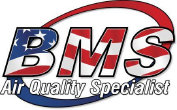How do I know if my system has a legitimate problem?
Most legitimate cooling problems have a telltale sign: a house never gets as cool as the temperature setting on its thermostat. This could happen for several reasons; among those are leaky ducts, low Freon level, or a malfunctioning thermostat. HVAC technicians use equipment that determines these and other technical problems on short notice.
Is it possible to predict a problem without performing an inspection?
While it is possible to predict a problem without performing an inspection, it is highly inadvisable. HVAC services that propose a solution before performing an inspection are usually looking for easy money, or maintain a low standard of customer care. In either case, they should not be hired
How do I know if my AC unit needs replacement or repair?
One of the best guides for HVAC replacement versus repair is the expected lifespan of the equipment in question. If the lifespan of your unit is twelve years, and a technician suggests replacing it when it has a problem after fourteen years, chances are replacement is the best option. In some cases, repairing an AC unit is more expensive than replacing it.
How can I install an AC system without affecting the interior of my home?
If you have a heritage home where the interior would be compromised by installing ductwork, installing one or more ductless mini-split systems may be the answer. While ductless mini-split systems cool in zones instead of centrally, installing the right number of air handlers can achieve the same cooling effect as central AC.
How can I choose an energy efficient AC unit?
A seasonal energy efficiency ratio (SEER) rating indicates the energy efficiency of an AC unit. With the exception of window units, all residential air conditioners sold in the U.S. must have a SEER rating of 13 or above. A SEER rating above 13 is considered highly energy efficient.
What happens if a service damages my property while performing work?
Before hiring an HVAC service, make sure it carries liability insurance to pay for accidental property damage. If damage occurs and a service is without insurance, pursuing the matter in civil court may be the only option.
Is it acceptable to pay a portion of a project's cost upfront?
Paying for a portion of a ventilation and air conditioning project upfront is inadvisable. The request for upfront payment could signify a company's insolvency, or that it plans to take your money and run. There are numerous companies that do not require payment upfront, making hiring one that does unnecessary.
